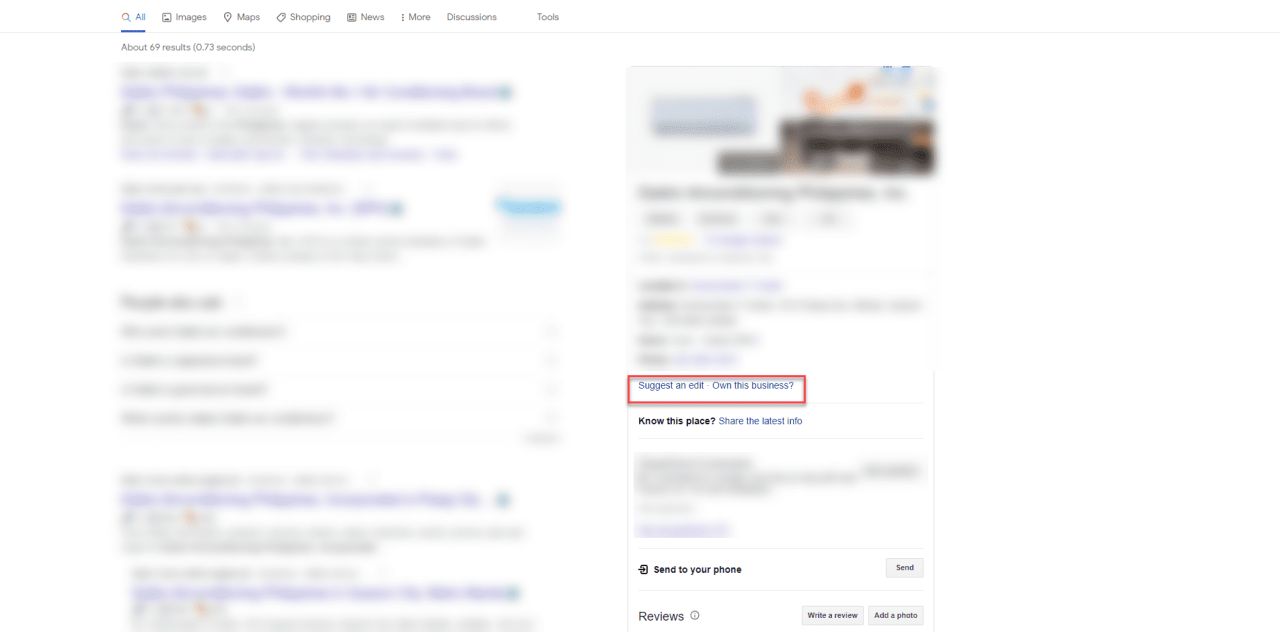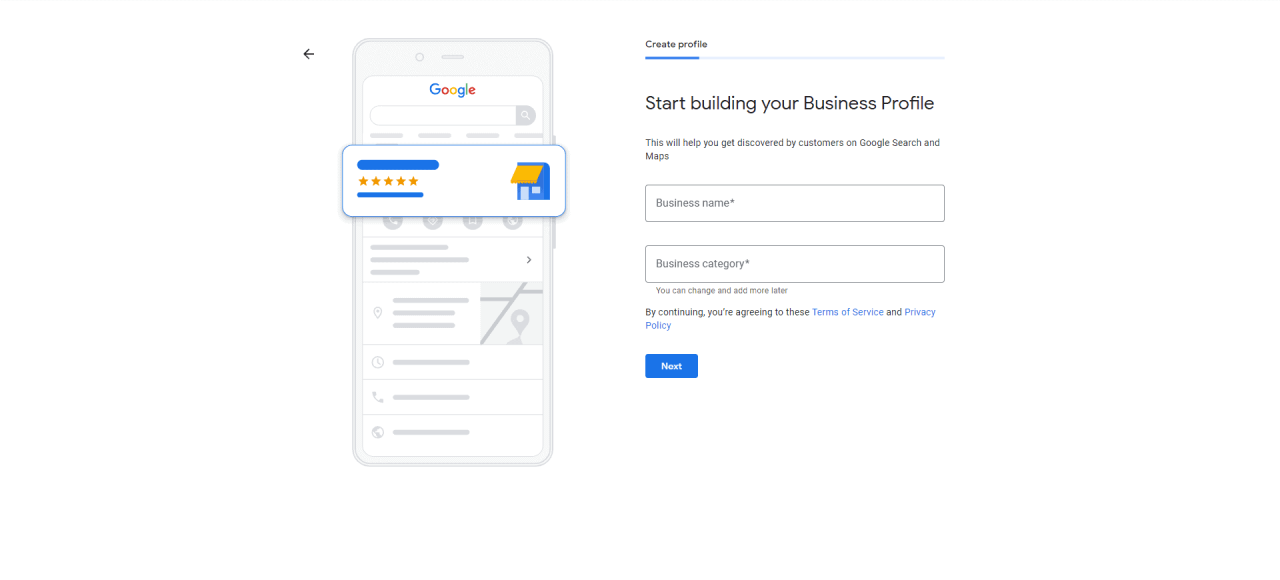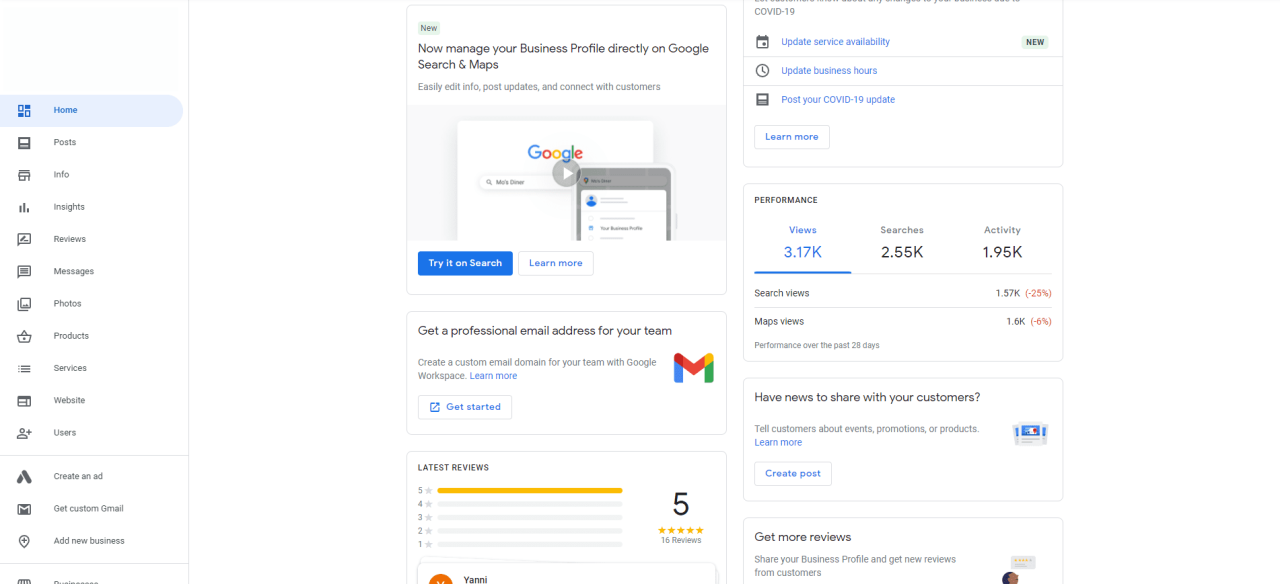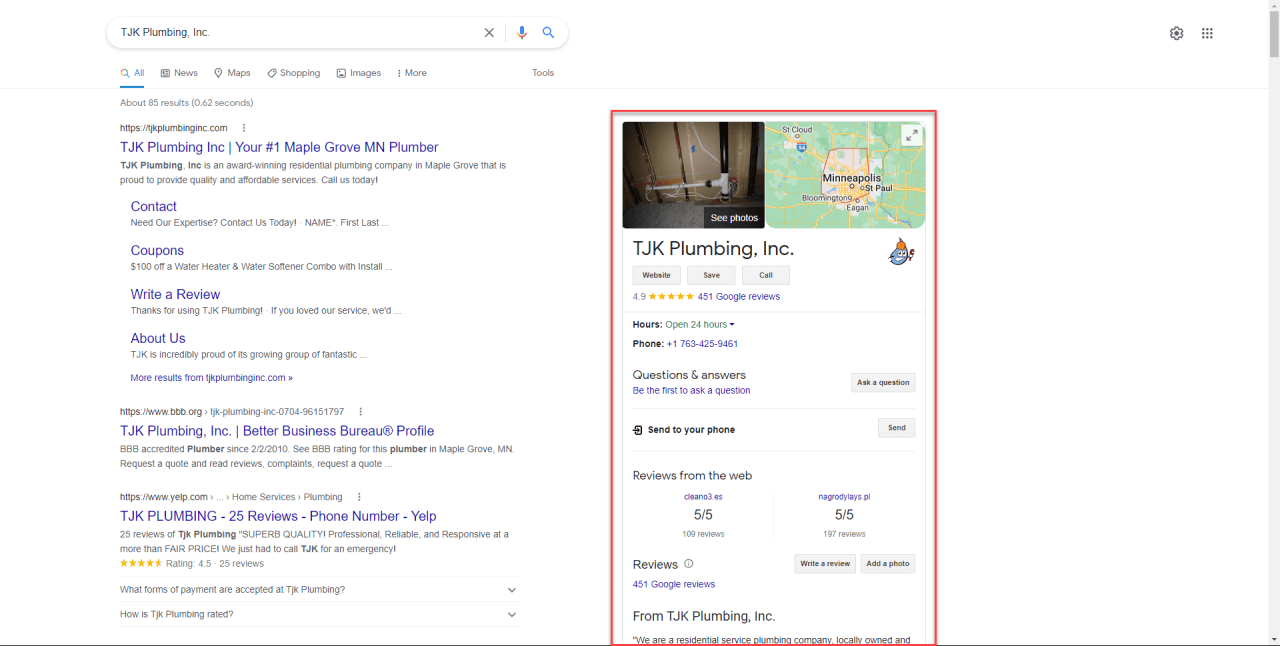With all the search engine result page (SERP) features that appear above the actual search results, it’s time to find ways for your site to show up on these features.
Increasing your visibility on search results allows you to generate more clicks to your website and potentially convert them into customers.
Knowledge panel is a SERP feature with the most prominent position on search results.
Making your business appear inside knowledge panel for your target keywords should help increase your online visibility, which leads to attracting more clients as a result.
This article covers the step-by-step process of getting a Google Knowledge Panel for your business.
But before diving directly into that, we’ll first discuss what a Knowledge Panel really is and what value does having one bring to your business.
What is a Google Knowledge Panel and Why It’s Important
The Google Knowledge Panel is a feature on the right side of search engine results page (SERPs). You will see a knowledge panel mostly when searching for people, places, brands and locations.
Google’s knowledge graph powers the Knowledge Panels. The search engine gathers data from different trusted sources. It usually contains a short biography, facts, links to the social profiles relevant to the searched entity, and “People also search for” queries.
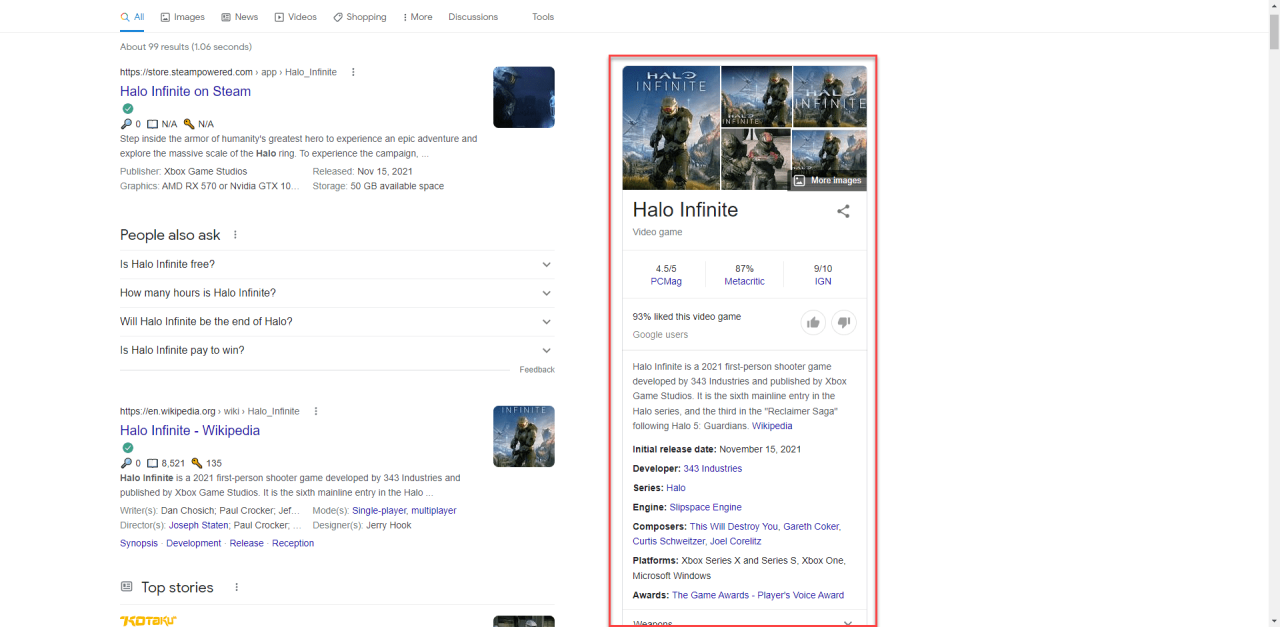
But there are other details included in the Knowledge Panel depending on the search query. For instance, a celebrity search shows you their movies and TV shows, while an athlete search would bring up their stats from the latest games they played.
Whatever information appears on the Google Knowledge Panel, it is crucial for brands and local businesses to leverage this SERP feature.
Besides having prominent placement on search results, you have better control of the information that appears in this section if you manage to secure a Knowledge Panel for your business—”if” being the operative word.
If you search for your brand name and see a Knowledge Panel appearing for it, look at the bottom of the section and click on “Claim this knowledge panel” or “Own this business.”
It will bring you to another page where you can verify your entity on Google and enhance your presence on the search engine.
If you don’t see a Knowledge Panel for your business, that’s fine. After all, this article is all about helping you get a Google knowledge panel for your most relevant search queries.
Here are a few things you can do to get a Google knowledge panel for your brand:
#1 – Create a Wikipedia Page
Almost all of the short biographies that appear in this section of SERPs are from Wikipedia and Wikidata.
So, securing a Wikipedia page is of utmost importance if you’re serious about appearing on search results with a Knowledge Panel for your business.
There are some 3rd party services that offer Wikipedia page creation as a service, so if you don’t want to get your hands dirty or you just don’t have the time to do this on your own, consider hiring an expert to do it for you. If you want to do it yourself, here’s the process.
First, you must create a Wikipedia account by clicking on the “Create account” on its homepage.
The site will then ask for your preferred username, password, and email address with which your account will be associated.
Once you’re logged in to your new account, the hard part begins.
Before you even consider creating a page about your business, you must prove your worth as a Wikipedia user by proposing changes or editing other pages on the site.
Your edits don’t even have to be related to the industry with which you want to associate your brand.
For example, if you’re passionate about games and sports, look for pages on the site related to these topics and propose changes for inaccuracies you can find.
Also, you cannot edit a page directly if there’s a clear conflict of interest on your part. The best you can do is suggest the change to be made and discuss it with other editors to facilitate the edit.
You can read more on Wikipedia’s rules about conflict of interest here.
Once you’ve proven your mettle as a Wikipedia user and editor for approximately a month, the site will auto-confirm you as a user. You can then start creating your brand’s page on the site.
When creating content for the Wikipedia page for your business, it’s not enough to produce a grammatically correct and objectively written piece. You also need to cite sources from the most authoritative and credible websites.
We’re not just talking here of high DA/DR/TF/CF sites or even press release websites. We’re referring to newspapers, journals, and books that mentioned your brand name.
Unlike online publications, securing mentions and links from these sources is much more difficult. Authors from these sources wouldn’t include your business unless they believe it provides value to their readers. Any press you can get from these sources further reinforces the legitimacy of your business.
So, if you don’t have brand mentions on these sites, consider building them up first before considering creating a Wikipedia page.
Once you have created the page, it’s all in the hands of the editors. There’s a slim chance your Wikipedia page won’t be approved. So, it would help if you observed the guidelines to get the approval of editors for your page.
Here are some of the requirements to get you started:
- Help:Your first article
- Wikipedia:Policies and Guidelines
- Wikipedia:Submission Standards (this is currently in draft mode as of writing, but it should provide you with a general idea of how you should write your page).
Getting approval for your Wikipedia page is only the beginning. Assuming that your page gets published, you must constantly update the page with new information and monitor any unnecessary changes to maintain its integrity.
This shows that creating a Wikipedia page is not a one-and-done deal. It would help if you also made edits to other pages to show that you’re still a valuable part of their community.
#2 – Develop a Social Media Strategy
You want to show Google that you are running a legitimate business. Getting a Wikipedia page approved is a step in the right direction.
The next is ramping up your activity on social media.
Since social channels serve as sources of information for the knowledge graph, you must stay engaged with your followers on social media.
To do this, you must determine which social channels you should devote time to building. Then, consider which platform your target audience visits the most.
This is where the demographics and psychographics of your audience come in. So, for example, if you’re in the B2B space, it makes sense to create a LinkedIn page for your business that you must grow and cultivate.
Next, develop a social media calendar for each channel and fill out the dates with posts geared towards building your brand.
Brainstorm social media post ideas by analyzing the best posts of your competitors and understand why they got lots of engagement from them. You could then replicate the same tactics on your social channels to generate the same results.
The most crucial aspect of your social media strategy is analyzing the results over time. You must see which posts worked the best and why so you can repeat the same results over and over.
At the same time, see which posts didn’t perform at all and understand why. Consider tweaking them or taking them out of your strategy altogether.
#3 – Use Schema Markup
In addition to collecting data from knowledge graph, Google crawls your website and looks at structured data for additional information about your business. Therefore, it’s important that you implement schema markup on your website.
Determining what the page is about can provide additional SERP features to give users more information about your ranking page.
You can find structured data at work when searching for recipes. For example, most pages on search results show you the user rating for a recipe, the number of users who voted, and the recipe prep time.
To implement structured data on your website, you must use Schema markup.
You can easily create Schema markup for your website using this free Schema Markup Generator by Merkle. All you have to do is create the schema markup code and add it to your website.
Choose which Schema.org markup code you want to create from the drop-down menu and fill in the blank with the correct details about the page on your site.
You can also use WordPress plugins such as WP Schema to create the Schema markups from within site. Using this solution, you no longer have to generate the markup code for each page manually.
#4 – Create a Google Business Profile
Another way to legitimize your local business in the eyes of Google is through the creation of a Google Business Profile (GBP).
A GBP provides you with a single place to manage your local business. Think of it as your Google brand account.
You must claim your business with an existing Knowledge Panel on Google or add your business.
By filling out your details, you can appear on local map pack listings on the right side of SERPs (similar to the Knowledge Panel). It helps increase your chances of getting higher rankings in Google local search results and people reaching out to your business for your services.
Not all businesses are eligible to sign up for a free GBP account. For example, the business needs to “make in-person contact with customers during its stated hours” to become eligible for an account.
Click here for more information about GBP’s guidelines.
Upon signing up for a Google Business Profile, it will help you unearth insights about your online business. It tracks the number of clicks your site received over time, the search queries used to find your site, and more.
Now, regarding the Knowledge Panel, Google draws information about a business from GBP. In particular, it collects user-generated content from your profile to display on the Knowledge Panel.
So, whatever appears on your GBP, Google may feature it on your Knowledge Panel. Here’s an example of what your Knowledge Panel would look like if you filled out your profile details and have gathered some customer reviews:
By optimizing your GBP to show your available hours and phone number and the number of reviews, and total average score, you can generate more customers from Google search easily.
#5 – Generate User Reviews
As mentioned, Google Business Profile allows you to collect user-generated content from your customers, particularly customer reviews.
The average score and the volume of reviews your business receives on Google will help the search engine determine whether it deserves a Knowledge Panel or not.
Having lots of authentic reviews from customers should warrant your business consideration for a Knowledge Panel.
On the other hand, a business that receives high scores from only a handful of people may not be enough to get a Knowledge Panel.
You’re probably thinking of incentivizing customers to give positive reviews to your business. Unfortunately, this is against Google guidelines. Currently, Google removes these reviews from the profile upon detecting them using an automated system.
To better use your time, consider accumulating user reviews the old-fashioned way.
The best way to do this is by asking customers to submit a review after doing the job for them. You can ask them when sending them the bill in person or via email.
Regarding the latter, you can include a link to the page where customers can leave a review on your Google Business Profile.
Consider handing them a business card with a shortened link or QR code pointing to the review page for face-to-face encounters.
If they forget to leave a review, you can send them an email as a gentle reminder.
Conclusion
Having a Knowledge Panel makes your business feel legitimate in the eyes of your prospects. Getting one that showcases your business’s contact details, availability, and high user rating also makes it easier for your prospect to reach out for your services.
At the same time, getting a Knowledge Panel is beneficial for your brand in the long run.
By getting a Wikipedia page published, developing a solid social media strategy for engaging with people, and collecting as many user reviews as possible, you’re simply making your business as good as it can be to be eligible for a Google knowledge panel.
And once Google decides you’re doing everything under your power to make your business attractive to your prospects, you can expect to get a knowledge panel sooner than later.
